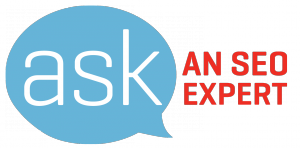
October 27th, 2012
by Emily Burgett
In April of this year, Google announced their commitment to user accessibility and revealed what changes that commitment would mean for their guidelines. These changes ultimately meant that Google was making a commitment to delivering extremely relevant content to the end user on all devices resulting in a better user experience. You can read more about responsive design and see examples on Google Webmaster’s blog.
This week on Ask An SEO Expert, Jesse Laffen will briefly explain what responsive design is and what effect this commitment can have on your SEO efforts.
Do you have an SEO question that you would like to have answered? Simply submit your question on our website or via Twitter by using the hashtag #AskAnSEOExpert.
Transcript:
 The question is, are there any SEO pros or cons to look out for with the recent commitment by Google to responsive website design? Before I answer the question, I want to go through a little bit about exactly what responsive website design is. It’s kind of a term that can mean anything, right? Specifically, what Google committed themselves to do is really understanding and indexing content for any kind of screen or any kind of device.
The question is, are there any SEO pros or cons to look out for with the recent commitment by Google to responsive website design? Before I answer the question, I want to go through a little bit about exactly what responsive website design is. It’s kind of a term that can mean anything, right? Specifically, what Google committed themselves to do is really understanding and indexing content for any kind of screen or any kind of device.
So, what does this mean really? If this is my HTML page, in the past if I wanted to design for even multiple browsers, let alone multiple devices… So, here I’ve got my laptop and my iPad, this is a little flip phone and here’s my iPhone. I apologize for the artwork, I’m not an artist. What would happen was, you would actually have to create a separate style sheet for each one of those, right?
So my HTML would kind of get filtered through this style sheet. Each of those style sheets would end up going out and saying, “All right, that’s how it should look on a screen on Internet Explorer, or Firefox, or Chrome. Here’s what it should look like on an iPad. Here is what it should look like on my old school Droid flip phone,” maybe old school. I don’t know if they still make those. Here’s what it should look like on my iPhone.
That’s really confusing, because if you want to try to display your content on all these different kinds of devices, you could be sitting there writing style sheets forever, right? So, there are different ways to go about that, where the HTML on your page can actually speak to each of these devices directly without having to necessarily go through a style sheet for every single one.
So, what are some pros of that? This means that Google actually is really, really committed to trying to return great content that is really relevant to their users. They’re a search engine. They want to do right by their website visitors. The right thing for them to do is to actually serve up the best result and understand that.
So, the better Google can understand content and more different types of content, the better result that they’re eventually going to get to their end user. That’s good for them. It’s good for you because you can design pages that are great for your users that are going to get indexed, and you’re going to be found.
One of the only things that I would really watch out for is, consider the media types that you’re using when you’re serving up your content. So, even though it’s great that your HTML can speak to all these different devices in shorter, easier steps, it doesn’t necessarily mean that a Flash application is the best because, obviously, there are certain devices that are not going to be able to return that.
Just like if I have really, really great information in a PDF, probably not very good for a mobile device. Or if I’m not setting my line widths correctly and all of the sudden I have it up on a laptop screen, it looks kind of weird, right?
So, just make sure that you’re considering the file types. Make sure that they’re probably valid across all different types of devices. Other than that, it kind of diminishes the time it takes to build. It’s a better user experience. I mean, at the end of the day, that’s really what we all want, right?
Emily Burgett
Marketing Coordinator at Slingshot SEO, Emily Burgett is a Marketing Coordinator at Slingshot SEO.